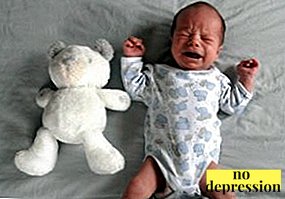On formation of human personality He is greatly influenced by the environment in which he spends his childhood and adolescence.
Psychological games and training allow you to adjust the behavior of adolescents and improve the effectiveness of their socialization in society.
Social development of adolescents

Adolescence in the modern sense is stage between childhood and adulthood.
Usually distinguish the junior level - from 12 to 14 years, the senior level - from 15 to 17 years.
This transition is quite complicated both for the children themselves and for their parents.
In the first place for a teenager goes his own personality, desires and needs. The child still does not have enough life experience, but is experiencing a strong desire for independence and defending his opinion.
He has formed his own value system, his own philosophy of life. Changes in consciousness often lead to conflicts with parents, older relatives, teachers.
At this age, significant changes in physiology occur - it invariably leads to rethinking your own "I".
Girls and young people are beginning to fully realize their gender, to have an increased interest in the opposite sex. Of great importance is the ability to build relationships with peers, to enter into a new social group.
Problems with communication, self-determination at this age can impose negative footprint on the whole subsequent process of socialization of the child in society.

Often unresolved precisely during adolescence psychological, emotional difficulties become the basis for the existence of complexes, self-doubt already in an adult, held in a person's life.
The social formation of a teenager's personality is influenced by two groups of factors:
- External. These include upbringing in the family, the requirements of teachers, norms of communication with peers, moral standards of others, existing social rules, etc. The child, in the course of his life activity, consciously and unconsciously assimilates those behaviors and norms that the surrounding people instill in him.
And a much greater influence on the personality of a teenager is provided by those people who are his authority.
- Internal. These factors include characteristics of character, temperament, values, self-control and discipline, moral qualities, etc. This group of factors directly depends on the innate personality traits, on the level of intelligence and upbringing.
Peer relations

Building relationships with peers in adolescence is of paramount importance.
Moreover, this communication is rather ambiguous.
On the one hand, young people seek merge with a peer groupbe the same as everyone else.
Differentness, expressed in features of appearance, low social or material situation of the family can be a serious reason for experiences.
On the other hand, teens experience irresistible desire to stand out, attract attention. At this age, its own attractiveness, ability to make an impression, acquires great importance.
For a teenager, it is extremely important to earn the respect of his comrades, that members of his social group show interest and a sincere desire to communicate.
At this age, the presence of truly close friends is important for the child; personality formation, the definition of their communication skills.
Often, adolescents have a constant change of social circle. This is caused by the chaotic change of interests and preferences, which leads to the search for new friends who share the current hobbies of the teenager.
In addition to close friends, at this age, adolescents actively make a large number of acquaintances, gather in companies, informal interest groups.
Such an expansion of the circle of contacts (as compared with the childhood age) makes it possible to push the framework of social existence, to obtain additional opportunities for self-realization.
How to teach communication with peers?

Not all guys in adolescence easily undergo a process of socialization.
Often children are faced with misunderstanding of friends, lack of congenial social circle, problems at school.
Such a situation can lead to serious feelings, depression, and withdrawal into oneself.
For this reason, the task of the family and teachers is to teach the grown-up child to communicate with peers, competently build personal relationships.
Family functions: to provide the child with psychological and material support, to provide him with emotional independence.
Baby still receiving from parents financial support and emotional involvement, should feel that he was given the freedom of expression and the definition of his life path.
Such an understanding will lead to an increase in the level of self-confidence and self-reliance. Family support and understanding is a guarantee of a healthy personality of a teenager.
Educators and psychologists, in turn, should help teens in the process of their socialization with the help of specially developed techniques that develop thought processes, emotional openness, communication skills.
Training exercises
Variants of training exercises used in working with adolescents:
"Learning to solve problems"

For each child, the leader of the training hands out a pen to a sheet of paper and offers to write out all the problems existing in life according to the degree of their importance decrease.
That is, the first problem - the most significant and requiring resolution in the first place. When all the participants of the training write their own problems, the moderator tells that any problem can be solved.
The main thing is to approach its solution correctly and never consider any critical situation as hopeless.
Then the leader writes the stages of solving any problem on a blackboard or on a sheet of drawing paper and invites the children to rewrite and save this information for further use in practice. The steps to solve the problem are as follows:
- determine the reality of the problem;
- analyze the situation;
- identify existing barriers;
- set a goal;
- write on paper all possible solutions to the issue;
- make a decision;
- analyze the consequences.
"Emotions and actions"

The facilitator distributes to the children the sheets of paper on which the following are written unfinished sentences:
- I feel sad when ...
- I am happy when ...
- I feel bad when ...
- I feel good when ...
- I am calm when ...
- I'm angry when ...
- I like when…
- I do not like when ...
First, the children are given the task to complete the sentence in accordance with their own ideas and experiences. When all those present are done, the presenter suggests writing next to each phrase, what does a teenager do to deal with the situation.
For example: “I feel sad when parents shout at me because of my bad behavior. In this case, I try to apologize for my behavior and correct myself. ”
The presenter further explains to the children that every act leads to some consequences. And before you do and say anything, you should always analyze what will happen next.
It is necessary to bring the following to the participants of the training: first comes the thought, and then the action.
"Complete the phrase"

The facilitator asks everyone present at least one question to which he must answer.
Questions should be structured so that according to the answers to them draw conclusions about the level of social adaptation, about understanding the basics of interpersonal interaction, about existing problems.
A sample list of questions you can ask children:
- What qualities does a true friend have?
- What kind of friend are you?
- What do you lack in communicating with other people?
- What positive traits in your character can you name?
Psychological games
Psychological games are conducted by an appropriate specialist with a psychological education who seeks in the form of a game to instill in children the skills of communication among themselves, behavior in society.
For communication
- "Talk to a stranger". Each child takes turns in the center of the circle. Another member joins him. The task of the first teenager - to start a conversation "with a stranger," which he liked very much and interested. The task of the second teenager is to respond to cues and engage in dialogue. The guys are not limited in their imagination. The place of communication can be a train car, bus situation, store ticket office, etc. A stranger may be an ordinary person, a popular film actor, etc. From the beginning of the dialogue to the farewell, 3 minutes is given for the whole process.
The task of the children is to build effective interaction in this short period and to go through all the stages of communication: acquaintance, communication, farewell.
- "Pea King". Each teenager is given five peas. Children come together and enter into dialogue. Dialog time is limited to 1 minute. After this time, the interlocutors change. During the conversation, the children alternately ask each other questions, the purpose of which is to receive the answers “yes” or “no”. During communication, you can not be silent, avoid answers. The one who during the conversation answered with one of the indicated words gives one pea. After losing all 5 peas, the player is eliminated. The richest player becomes king.

On rallying
- "Seven Kids". The game is based on the famous fairy tale. Children are divided into two groups of four participants. The first four people go to the center. They are kids, who were left alone at home and lost their three brothers. Somewhere on the street there is a gray wolf, who pretends to be a goat. The task of adolescents is to find out which of all the other kids (members of the second group) are really their brothers, and who is the gray wolf. The clarification of the truth occurs in the process of active communication. Real kids are launched into the house.
- "Score". Teenagers are invited to think about their bad and good features. Then pairs are called up in turn which interact. One teenager is a buyer, the other is a seller.
The buyer gives the seller the negative quality of his character that he does not need and receives in return a positive one, which he lacks. Then the children change places.

So in adolescence children face many doubts and experiences. The task of society in the face of the family and teachers is to help teenagers overcome their problems and successfully go through the process of socialization.
Game "Concentration Camp" for teenagers:



